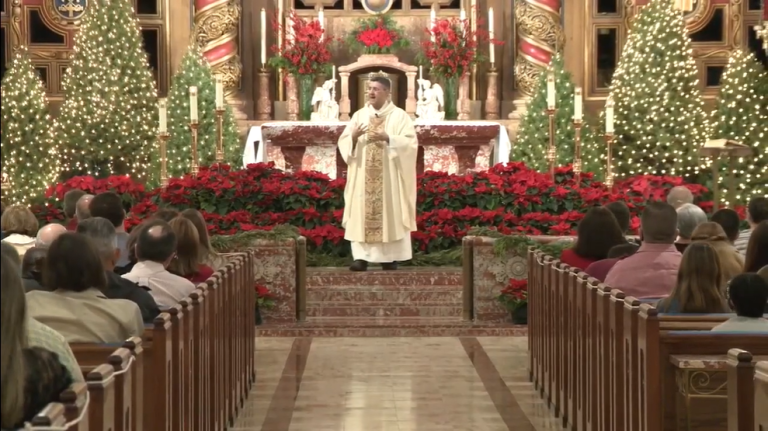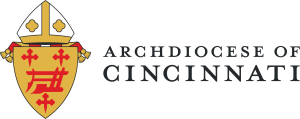“You have been using water continuously for the last three months,” they told us. Not the kind of news any homeowner wishes to receive. We had a leak.
When the plumber arrived on a Monday morning to identify its location, we took a walk to the meter. He asked me how long I had lived there and why we had moved, with the logical follow-up being a question regarding the nature of my profession. I was all too happy to tell him that I was the Director for Evangelization for the Archdiocese of Cincinnati. It was my day off. Elbow deep in my meter, smiling, he said, “Well you don’t need to evangelize me, I’m already Catholic.” Also smiling, I thought to myself, “We’ll see about that.”
Work-life balance is a myth.
Now it was my turn to play talk show host. I asked about his parish and he spoke positively about his life as a Catholic, recalling schools and parishes he attended over his life. I asked about his work and he again spoke openly, vulnerably in fact, describing his decision to start his own business about 5 years prior in an industry dominated by large competitors. I heard the risk in his voice and the Holy Spirit began to convict my heart. I wanted to bless him. I wanted to identify the grace of the moment.
I reminded him with the urgency worthy of the Gospel that his work was his apostolate – to be Jesus in the lives of people when they are vulnerable and stressed, for I knew quite well that ain’t anybody having their best day when the water line leaks.
Work-life balance is a myth.
His eyes began to well up. I don’t recall exactly what he said next, only that it was prefaced with the phrase, “Us believers…” I was with him in that moment. He then went on to tell me about a near death experience from his twenties following a car accident that should have otherwise killed him.
Work-life balance is a myth. There is only the Kingdom.
The Whole Thing Is “The Real Stuff”
In his book Chance or the Dance, Catholic author Thomas Howard writes:
“But there is the question. What, precisely, is ‘the business of life’? We can get onto an endless carousel if we try to decide which is the serious stuff of life, work or play. It is possible to take either view: either we toil away our eight hours so that we can get down to the real stuff – pleasure and love and recreation – or we enjoy periodic intervals of escape from the real stuff, the work… A little probing reveals the superficiality of either view. We know that the real stuff of life cannot be located at our desk or on the beach. Whatever it is, it won’t be parceled out that way. Experience doesn’t hold off while we are at work and begin when the whistle blows. The whole thing is ‘the real stuff’, and the irony is that, unless we take ourselves by the scruff of the neck and make ourselves reflect upon it, we allow it to tumble past us helter-skelter and never grasp any of it as real.”
The Vocation to the Apostolate
For the Christian, work-life balance is a myth. No, don’t check your email during dinner. Don’t neglect your spouse and kids for the sake of a prospective promotion. That’s most certainly not the point. Priorities are important. But “the Christian vocation is, of its nature, a vocation to the apostolate,” says the Catechism. (CCC 883)
When the Church speaks of “apostolate,” she refers to “‘every activity of the Mystical Body’ that aims ‘to spread the Kingdom of Christ over all the earth.’” (CCC 863) As necessarily a vocation, apostolate is not something that you do or don’t do, stop or start. Apostolate is something that you live; it’s who you are! Or, to borrow from Howard, the “whole thing is ‘the real stuff.’” The whole thing is apostolate.
The Danger of Professional Christianity
Work-life balance is a myth in the same way that compartmentalized Christianity is a myth. It was a myth for my newfound friend, lest he believe that his leak detection business or the quality of his work were anything less than his net and bait as a fisher of men. For myself, an even greater temptation lay before me: the danger of “professional Christianity” that would seek to limit evangelization to the nine to five efforts of experts, not to be bothered on their “day off.”
According to Pope Francis:
“It would be insufficient to envisage a plan of evangelization to be carried out by professionals while the rest of the faithful would simply be passive recipients.” (EG 120)
Similarly, Pope Saint John Paul II writes:
“[Evangelization] cannot be left to a group of ‘specialists’ but must involve the responsibility of all the members of the People of God. Those who have come into genuine contact with Christ cannot keep Him for themselves, they must proclaim Him.” (NMI 40)
Only problems arise when we attempt to separate the work of Christianity from the life of Christians: from moral legalism to minimalism to clericalism to the everyday scandal of my sin.
Work-life balance is a myth. There is only the Kingdom.
Ryan Mahle




